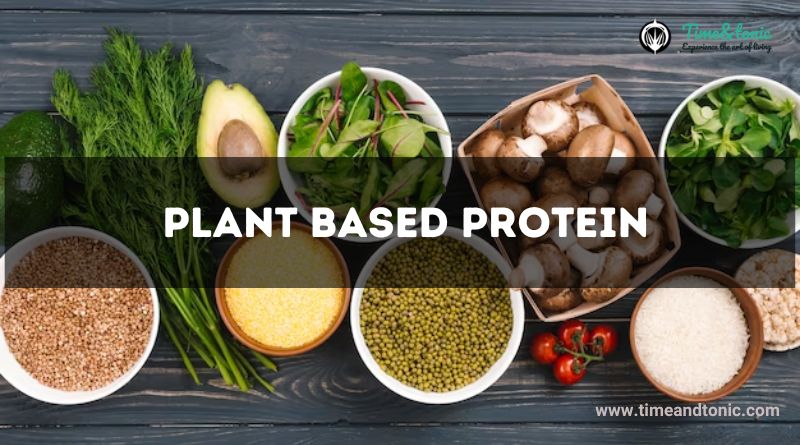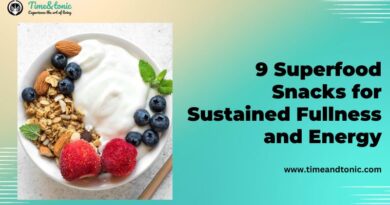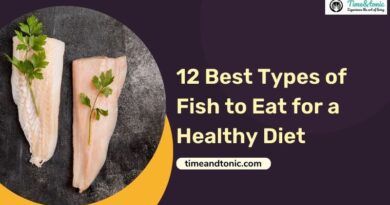Exploring the Power of Plant Based Protein
In our quest for healthier living and a more sustainable future, the spotlight has shifted to plant based protein, a nutritional powerhouse that is reshaping the way we perceive our diets. As the awareness of environmental impact and personal well-being grows, embracing plant-based proteins has become more than just a trend—it’s a fundamental shift in our approach to nutrition.
Plant based protein offers a remarkable array of benefits, not just for our bodies but also for the planet. With a focus on sources like beans, legumes, nuts, seeds, and whole grains, it provides a rich and diverse palette of essential amino acids, vitamins, and minerals. Beyond its nutritional prowess, plant powered protein plays a pivotal role in mitigating climate change, conserving water resources, and promoting biodiversity.
Join us on a journey into the heart of plant powered protein. In this exploration, we will unravel the nutritional wonders, debunk common myths, and delve into creative ways of incorporating these powerful proteins into our daily lives. Discover how plant powered protein is not merely a dietary choice but a transformative lifestyle, paving the way towards a healthier you and a greener Earth.
Plant Based Protein
Plant based protein refers to proteins derived from plant powered sources such as legumes, beans, nuts, seeds, whole grains, and vegetables. These proteins serve as essential building blocks for the human body, playing a crucial role in various physiological functions. Unlike animal-based proteins, plant-powered proteins come from non-animal sources, making them a fundamental component of vegetarian, vegan, and plant-based diets.
Nutritional Benefits of Plant Based Protein
Plant powered protein is a nutritional powerhouse, offering a wide range of benefits for individuals seeking a sustainable and health-conscious dietary choice. Here are the key nutritional advantages of incorporating plant powered protein into your diet:
1. Complete and Incomplete Proteins:
- Diverse Amino Acid Profiles: Plant based proteins, when combined strategically, can provide all essential amino acids, making them complete proteins. Examples include quinoa and soy.
- Complementary Proteins: Even incomplete plant proteins can be combined to form complete proteins. For instance, beans paired with rice create a complementary amino acid profile, ensuring a well-rounded protein intake.
2. Rich in Fiber:
- Digestive Health: Plant based proteins are often packed with fiber, aiding in digestion and promoting a healthy gut. This fiber content supports regular bowel movements and prevents constipation.
3. Low in Saturated Fat:
- Heart Health: Unlike many animal-based proteins, plant powered proteins are typically low in saturated fat. Diets low in saturated fat are associated with a reduced risk of heart disease and high cholesterol levels.
4. Abundant Micronutrients:
- Vitamins and Minerals: Plant based protein sources are rich in vitamins (such as folate, vitamin C, and various B vitamins) and minerals (such as iron, magnesium, and potassium).
5. Antioxidants and Phytonutrients:
- Disease Prevention: Many plant proteins contain antioxidants and phytonutrients, which help combat oxidative stress and inflammation. These compounds contribute to a reduced risk of chronic diseases, including certain cancers.
Also Read: Bliss Belly Fat Trimming Tea’s
Health Benefits of Plant Based Protein
Embracing a diet rich in plant powered protein not only benefits your health but also has a positive impact on the environment. Here’s a detailed look at the numerous health advantages associated with incorporating plant powered protein into your meals:
1. Heart Health:
- Lower Cholesterol Levels: Plant based proteins are naturally cholesterol-free. Consuming them can lead to reduced LDL (low-density lipoprotein) cholesterol levels, lowering the risk of heart diseases and stroke.
- Blood Pressure Regulation: Plant-based diets, including plant powered proteins, are often lower in sodium, which helps in managing blood pressure and reducing the risk of hypertension.
2. Weight Management:
- Satiety and Weight Loss: Plant basedproteins are rich in fiber and protein, promoting a feeling of fullness. This satiety helps in controlling appetite, making it easier to manage weight and prevent overeating.
- Low Caloric Density: Plant powered proteins are generally lower in calories compared to many animal-based proteins, making them a great choice for those aiming for weight loss or weight maintenance.
3. Digestive Health:
- Improved Digestion: The high fiber content in plant powered proteins aids digestion, prevents constipation, and supports a healthy digestive system. A healthy gut is linked to overall well-being and a strong immune system.
4. Reduced Risk of Chronic Diseases:
- Diabetes Management: Plant based diets, including plant powered proteins, have been shown to improve insulin sensitivity, helping in the management of type 2 diabetes.
- Cancer Prevention: Diets rich in plant powered proteins are associated with a reduced risk of certain cancers, particularly colon and breast cancer. Antioxidants and phytonutrients found in plant foods play a role in cancer prevention.
5. Improved Bone Health:
- Calcium Intake: Many plant based protein, such as tofu and fortified plant milks, contain calcium, essential for bone health. Adequate calcium intake reduces the risk of osteoporosis and bone fractures.
Also Read: Late-Night Snacks
Types of Plant Based Protein
Plant powered proteins come in a diverse array of options, each offering unique flavors, textures, and nutritional benefits. By incorporating a variety of plant powered proteins into your diet, you can enjoy a well-rounded nutrient intake while exploring a world of culinary possibilities. Here are some popular types of plant powered proteins:
Legumes

- Lentils: High in protein and fiber, lentils come in various types and colors, making them versatile for soups, stews, and salads.
- Chickpeas: Also known as garbanzo beans, chickpeas are a protein powerhouse and a key ingredient in hummus and falafel.
- Black Beans: Packed with protein, black beans are a staple in Latin American cuisine and are excellent in salads, burritos, and soups.
- Peas: Both green and yellow peas are rich in protein and can be used in a variety of dishes, from stir-fries to pasta.
Nuts and Seeds

- Almonds: Almonds are not only a good source of protein but also provide healthy fats and vitamin E. They can be enjoyed as snacks or added to salads and smoothies.
- Chia Seeds: These tiny seeds contain a good amount of protein, fiber, and omega-3 fatty acids. They can be used to make puddings, added to yogurt, or incorporated into baked goods.
- Flaxseeds: Rich in protein and fiber, flaxseeds are also a great source of omega-3 fatty acids. Ground flaxseeds can be added to smoothies, oatmeal, or used as an egg substitute in baking.
- Pumpkin Seeds: Also known as pepitas, these seeds are a good source of protein, iron, and magnesium.
Whole Grains

- Quinoa: Quinoa is a complete protein, meaning it contains all essential amino acids. It has a nutty flavor and can be used as a base for salads, stir-fries, or stuffed vegetables.
- Brown Rice: Brown rice contains more protein and fiber than white rice. It can be paired with beans, vegetables, or tofu for a balanced meal.
- Farro: Farro is an ancient grain rich in protein, fiber, and nutrients. It has a chewy texture and can be used in salads, soups, and grain bowls.
- Bulgur: Made from cracked wheat, bulgur is a good source of plant-based protein. It’s commonly used in Middle Eastern dishes like tabbouleh.
Soy-Based Proteins

- Tempeh: Made from fermented soybeans, tempeh is a dense, nutty-flavored protein source. It can be sliced, marinated, and used in sandwiches, salads, or stir-fries.
- Edamame: Young soybeans, or edamame, are a protein-packed snack and can also be added to salads, pasta, or enjoyed on their own with a sprinkle of sea salt.
Seitan

- Seitan: Also known as wheat gluten, seitan is a high-protein meat substitute made from gluten. It has a chewy texture and can be grilled, sautéed, or used in sandwiches and stir-fries.
Plant-Based Dairy Alternatives

- Soy Milk: A common alternative to cow’s milk, soy milk is naturally high in protein and can be used in cooking, baking, and as a beverage.
- Almond Milk: Almond milk is lower in protein than soy milk but is a good source of calcium and vitamin E. It’s often used in smoothies, cereals, and coffee.
- Coconut Yogurt: Made from coconut milk, coconut yogurt is a dairy-free option that provides a moderate amount of protein. It can be enjoyed with fruits and granola or used in recipes that call for yogurt.
Also Read: Nutrient-Rich Foods
Conclusion
In the ever-evolving landscape of nutrition, plant powered protein stands as a beacon of health and sustainability. By embracing the rich variety of legumes, nuts, seeds, and grains, we not only nurture our bodies but also contribute to a greener, more compassionate planet. With each plant powered meal, we take a step towards a future where both our well-being and the Earth thrive harmoniously. Plant powered protein isn’t just a choice; it’s a transformative lifestyle for a healthier self and a better world.
FAQ
Yes, plant powered proteins can meet your daily protein requirements when consumed in a balanced and varied diet. By incorporating a diverse range of plant-based protein sources, you can ensure you’re getting all the essential amino acids your body needs.
While most plant proteins are incomplete on their own, combining different plant sources, such as beans and rice, creates complete proteins. A varied diet ensures you get a full spectrum of amino acids necessary for your body.
Absolutely. Plant powered proteins can fulfill the protein needs of athletes and bodybuilders. Sources like soy, quinoa, and lentils provide ample protein for muscle growth and recovery.




